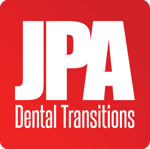There are plenty of “dental practice management” tips out there. We wish we could narrow it down to one magical tip to run the most efficient dental practice. Quite frankly, you can’t. It takes a lot of hard work, relentlessness, and continuous learning. After diving into various blogs and articles as well as reflecting on our experiences working with dentists, here is our take on 7 important dental practice management tips to improve your office efficiency.
Here Are Our 7 Dental Practice Management Tips:
1. Update dental communications and billing
For such a tech-savvy society, you need to keep up with patient expectations and business efficiencies that will help your practice run smoothly. That’s why patient communication softwares that send text reminders and automated email reminders can add value to your practice. Gone are the days of constant telephone calls that take up your staff’s time. (While these certainly play their role, they are not everyone's preferred communication method.) When you have a new patient, add a “preferred communication” method question to the new patient intake form. At the end of the day, ease in communication by using technology can provide a better patient experience, which plays its part in patient retention.
If you haven’t already automated your billing, this is a must. Investing in an invoicing and billing software is an inexpensive and simple way to send patients billing statements. Patient statements can take up too much time, that’s why we recommend dental practice management software to efficiently manage the entire process. This not only saves your staff many tedious hours, but also saves you money.
2. Set practice goals
If you don’t have goals, you can’t expect to double your profits. If you don’t grow, you can’t expect to sell your practice at the amount you intend to. We’ve met plenty of dentists who were surprised at the low value of their practice when they decided to sell. It all starts with knowing your numbers, getting a practice appraisal, and speaking to a dental-specific growth advisor or financial consultant to determine your goals (see tip #5).
You might not be thinking of selling quite yet, but if you focus on meeting specific goals each year that you own your practice, in most cases, you can expect much better results.
Need a way to hold yourself and your staff accountable to goals? Hold morning meetings. We’ve heard this time and time again from goal-oriented dentists, that keeping your staff in the loop is the key to success. It’s quite easy to get wrapped up in the day-to-day activities of being a dentist, which can make it difficult to keep track of your monthly or yearly goals. Hold morning meetings to keep your staff, and yourself, focused on the goals.
TIP: Create a budget - If you don’t have a budget, create one. Define your goals and budget for the year. (Read our blog article on practice budgets here.)
3. Hire a great staff to run your dental practice
Easier said than done, right? Your staff plays a major part in retaining patients. Remember to hire for a fantastic attitude and great work ethic, and train for skills. Pay and treat good employees well.
TIP: Create a healthy culture - Creating a healthy culture is especially important for retaining staff and operating efficiently. This does not mean micromanaging, but instead supporting your staff’s professional goals and facilitating a culture of continuous learning, team building, and fantastic communication. The happier your team is, the better they will work.
4. Don’t fall into dental burnout
Yes, dental burnout is a real thing. If you find yourself staying after hours to do “just one more” appointment, take a step back and reflect on this. Many doctors find themselves quickly burning out by having this mentality, especially new doctors. After all, you’re not just thinking about patients, medicine, and the art of dentistry, but are also taking on all the business responsibilities. Owning doctors must manage staff, finances, marketing, supplies, lease payments, bills and more. You’re doing plenty of work and you need to reap the financial benefits. This means ensuring that your practice is running as efficiently as possible. If you find yourself struggling, ask for help.
TIP: Show up on time - Not only does this help you set a positive example for your staff, but starting on time improves efficiency (and helps you leave work at a decent hour).
Related blog:
How Reviews Can Improve Your Dental Practice Value
Selling Your Dental Practice? Let's Talk Debt Payoff
4 Reasons Why Dentists Need a Retirement Plan
5. Work with excellent dental practice advisors and mentors
If your practice isn’t where you want it to be, there are dental advisors, mentors, and consultants out there. Take advantage of them! Managing a dental practice can be overwhelming -- it’s up to you, with a little help from your professional friends, to make sure it’s operating to its fullest potential. (Check out our network of professionals.)
Who should be on your team?
- Dental Broker
- Financial Advisor
- Lawyer
- Dental Accountant

6. Be patient-oriented
A positive experience for your patients can make a positive revenue impact on your practice. From their first touch with your practice to their last treatment, your patients remember it all. And they’re not afraid to be vocal about it.
Two things are important to note here -- one, the internet rules almost everything and Google reviews can make or break your practice. A negative Google review from the start can make it extremely difficult to get traffic to your practice. Especially when new patients in the area often look to Google to inform their decision first, rather than your website. Second, referrals give you a competitive edge. By delivering a remarkable dental experience, your patients will refer you to their friends and family, which will quickly grow your practice.
Being hit with a bad review happens to the best of practices. Don’t let it get in your head and, be sure to handle it with grace. The patient might have had a negative experience at another office and is taking it out on you. Of course, this doesn’t make it right, but reviews posted online almost never go away.
Ways to make a lasting impression and patient experience:
- Be accessible to new patients. Today we’re in the age of the “now” customer, who doesn’t want to wait weeks for an appointment. Find ways in your schedule (with your new efficiencies) to leave spots for new consults.
- Have an initial consult with your patient before they even start treatment. Ask them about their cosmetic needs, worries, dental history, and goals.
TIP: Continuous marketing - Keep a steady flow of new patients coming into your office, and reduce marketing startup costs by running longer campaigns.
7. Have a continued care strategy
What’s next in your patients’ dental plan? I remember when I went into a new dental office and they never asked to schedule the next dental cleaning appointment. As the patient, I didn’t go out of my way to ask for an appointment. Staff shouldn’t feel weird asking to schedule the next appointment -- a next appointment is always expected.
Wendy Briggs, CEO of Hygiene Diamonds tells us to remember the 3 R’s as part of your continuing care strategy: Recall, Recovery, Reactivation.
- Recall Tips - Make sure your patients leave with an appointment.
- Audit your appointment scheduling. If your appointments scheduled is 65%, that means 35% are leaving your office without an appointment. Way too many!
- Text a reminder one week before the appointment
- Call a few days before the appointment
- Practice painless hygiene
- Recovery Tips - Cover yourself if patients break appointments.
- Have an “if an appointment comes up sooner, would you like us to call you?” list.
- Make sure appointments always show up early.
- Check next week’s schedule and look for holes.
- Reactivation Tips - Reactivate patients who haven’t been back in 18 months.
- Call patients who haven’t been back in. Not all patients who haven’t been in have defected to another dentist’s office. Did your staff forget to schedule a follow-up appointment? Many times, they are simply just waiting for your nudge.
TIP: Same day dentistry - If your patient is already at the office, ask them if they’d like to get their cavity (or another procedure) taken care of that same day.
Improve Your Dental Practice with These Office Management Tips
Managing a dental office can be strenuous and overwhelming, but if you work hard, look at mistakes as opportunities for growth, and aren’t afraid to ask for help, the benefits are extremely rewarding. If you need help, we have a professional network of advisors that can help get your practice where it needs to be. We know dentistry and we’re here to help! Contact us.

 980.283.7355
980.283.7355














Comment